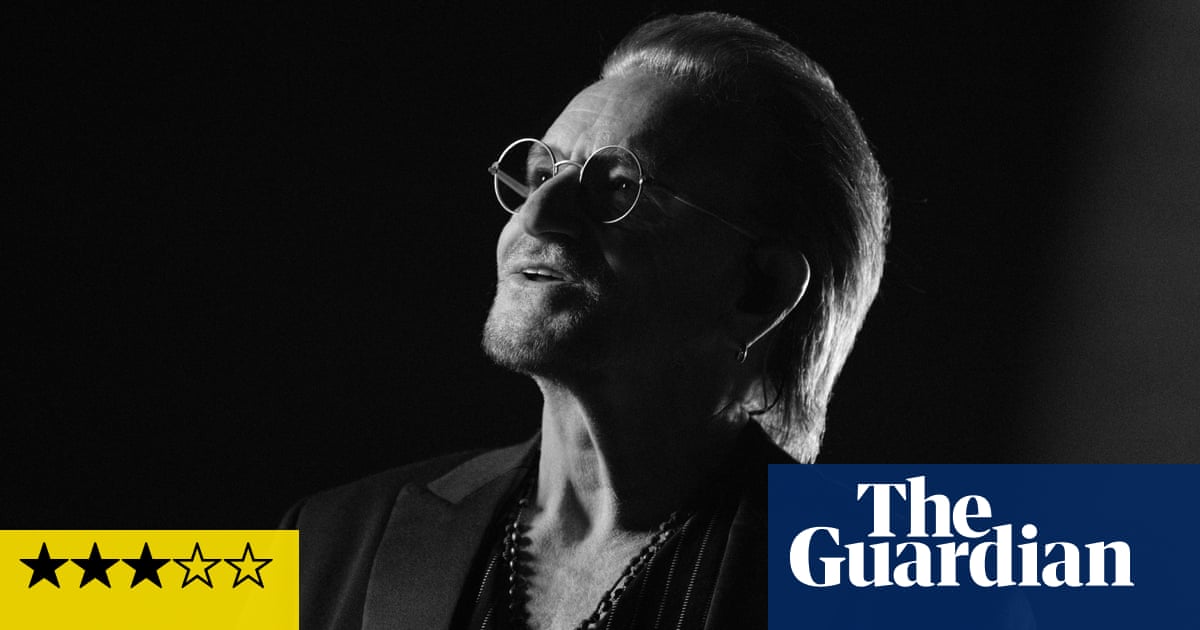The stadium-conquering rock superstarBonofinds a smaller arena than usual for this more intimate and much acclaimed “quarter-man” show, performed solo without his U2 bandmates Adam Clayton, David “The Edge” Evans and Larry Mullen Jr and filmed live on stage at New York’s Beacon theatre in 2023 by Andrew Dominik. It’s a confident, often engaging mix of music and no-frills theatrical performance, with Bono often coming across like some forgotten character that Samuel Beckett created but then suppressed due to undue levels of rock’n’roll pizzazz.
Bono delivers anecdotes from his autobiography Surrender, starting with his recent heart scare and going back to his Dublin childhood, his musical breakthrough to global fame, his post-Live Aid charity work on poverty and famine relief (though no discourse on the question of whether Live Aid was a good thing), and his religious faith which evidently morphed from a radical Christianity in his teen years to a more wide-embracing spirituality; it is all interspersed with “unplugged” versions ofU2standards accompanied by harp and cello.
It’s a performance delivered from the pulpit to the fanbase choir of course, but Bono is certainly working hard to find a new register of humility in his public persona – though this colossally successful figure will always be aware that he has a lot to be un-humble about. However, he is opening up about two very important figures in his life: his mother and father, Iris and Bob Hewson, and Bono has a powerful story to tell about his relationship with them. Iris collapsed and died at her own father’s funeral when Bono was just 14, and he and his brother Norman were the close-up witnesses to his father’s retreat into shock and angry melancholy; Bob never mentioned Iris again, and his pain only found an outlet in his love of classical music, with Bono internalising this silence.
Bono himself rehearsed with U2 in the early days in a building adjacent to the cemetery where Iris was buried and never visited her grave there. Added to which, Bob had a tough time coming to terms with the fact that his son was a huge star and the two settled into a barbed and bantering relationship which precluded admitting that they loved each other, and which had a very un-Hollywood ending at Bob’s deathbed. (I was sorry that the film didn’t include the sweet anecdote Bono has repeated in chatshows, that when Bob came backstage after a U2 megashow, the only way he could find to congratulate his son’s performance was to say that it was very “professional”.)
As for the other important people in Bono’s life – his bandmates and his wife Alison whom he married at the age of 21 - his relationship with them is (understandably) not explored onstage in the same detail. Even so, impressively, Bono does his best to descend from rock god to rock human.
Bono: Stories of Surrender screened at theCannes film festivaland is on Apple TV+ from 30 May.
